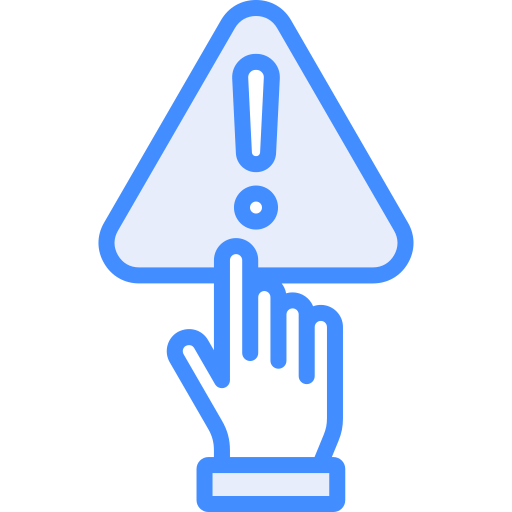Payday Lenders in California
Payday loans in California carry significant risks, such as high-interest rates and fees, potential credit score damage, and falling into a cycle of debt. Additionally, borrowers should only take out payday loans for emergencies and unexpected expenses and not as a long-term solution to financial problems. By using payday loans responsibly, borrowers can receive the funds they need without putting their financial future at risk.
Payday Loan Laws
Payday loans are governed by the California Deferred Deposit Transaction Law, which sets maximum loan amounts and interest rate caps. Lenders must provide clear and transparent information about loan terms and fees to borrowers. Additionally, repayment plans must be offered if payment terms cannot be met on time. Furthermore, California law prohibits certain predatory lending practices such as rolling over loans or charging excessive fees.
The State of California has several other pieces of legislation surrounding payday loans:
- Civil Code §1789.30: Dictates that the fee charged for a deferred deposit transaction cannot go beyond 15% of the check's face amount.
- Financial Code §23000: Regulates the legal obligations and ramification of violating payday loan laws.

Loan Terms and Conditions
Maximum loan amount: $300 ($255 when combined with finance charge)
Maximum Interest Rate: 460%
Minimum loan term: No minimum
Maximum loan term: 31 days
Number of rollovers allowed: No rollovers allowed
Finance charges: 15% fee up to $45
Legal action: 4 Years
Certified Payday Lenders in California
| Company Name | Company score | License Status |
| CURO Intermediate Holdings | 8 | valid |
| Populus Financial Group, Inc. | 7.8 | valid |
| CNG Financial Corporation | 7.1 | valid |
| Enova International, Inc. | 6.7 | valid |
| Bliksum, LLC | 6 | valid |
| Community Choice Financial, Inc.. | 5.8 | valid |
History of California Payday Loans
How to file a complaint
- ADDRESS
- Department of Financial Protection and Innovation, Attn:Consumer Services, 1515 K Street, Suite 200, Sacramento, CA 95814
- 1-866-275-2677
- Website
California Payday Loans Debt Relief
How to Get out of Payday Loan Debt?
Types of Quick Loans in California
Alternatives to Payday Loans in California
Personal Loans
Personal loans are a type of loan that provides borrowers with funds for a wide range of purposes, such as debt consolidation, home improvements, or unexpected expenses. In California, personal loans are typically unsecured, meaning they are not backed by collateral and are based on the borrower's credit history. Interest rates on personal loans can vary based on several factors, including the borrower's credit score, income, and other factors. The repayment terms of personal loans in California can range from several months to several years. Personal loans can be obtained from banks, credit unions, online lenders, and other financial institutions. It is important to compare rates and fees when applying for personal loans to ensure that the loan is affordable and fits within the borrower's budget.
Land Loans
Construction loans can be used to fund the building of a home or commercial property. Generally, these short-term loans cover materials, labor costs and other expenses associated with construction. Loan terms and conditions differ between lenders but typically require at least 20% down payment as an upfront cost. Borrowers must demonstrate good credit and their ability to repay the loan on time.
Construction Loans
Construction loans can be used to fund the building of a home or commercial property. Generally, these short-term loans cover materials, labor costs and other expenses associated with construction. Loan terms and conditions differ between lenders but typically require at least 20% down payment as an upfront cost. Borrowers must demonstrate good credit and their ability to repay the loan on time.
Bad Credit Loans in California
Bad credit loans in California are designed for borrowers with poor credit scores or limited credit histories. These loans may have higher interest rates and fees than traditional loans because lenders take on more risk, and the amount borrowed may also be lower. Bad credit loans may be secured or unsecured, with secured loans requiring collateral, such as a vehicle or savings account. It's crucial for borrowers with bad credit to compare terms and fees before borrowing, as costs can be much higher than traditional loans.
California Small Business Loans
California provides several types of small business loans with different requirements and terms:
- SBA loans: Loans that are backed by the U.S. Small Business Administration, which offer lower interest rates and longer repayment terms than conventional loans.
- Business lines of credit: A revolving line of credit that gives businesses access to funds they need it. They have flexible repayment terms.
- Equipment loans: Loans used to purchase or lease equipment required for running the business, with the equipment itself serving as collateral.
- Invoice financing: A type of financing that gives businesses an opportunity to receive cash advances on unpaid invoices. The invoices serve as collateral.
- Microloans:Small loans provided by nonprofit organizations or community lenders to help small businesses get started or expand.
VA loans in California
VA loans in California are available to veterans and active-duty military members and are designed to help them purchase a home with little to no down payment. These loans are backed by the U.S. Department of Veterans Affairs, and offer several advantages over traditional loans, including lower interest rates and no private mortgage insurance requirement. Additionally, VA loans have more flexible qualification requirements, making them an attractive option for those who may have difficulty meeting traditional loan criteria. To be eligible for a VA loan, borrowers must meet certain service requirements and have a Certificate of Eligibility.
California Student Loans
Many options are available to California students to help finance their college education. These options include:
- Federal Student Loans: Loans provided by the federal government offering low-interest rates and flexible repayment plans.
- California Student Aid Commission (CSAC) loans: Provided by the California government to eligible students attending California colleges or universities.
- Cal Grant: A state-funded grant program that provides financial aid to eligible California residents attending college.
- Private Student Loans: Loans from private lenders, they commonly have higher interest rates and may require a co-signer.
California Income Information
United States Census Bureau. “Poverty in the United States: 2021.” Accessed on April 18, 2023.
United States Census Bureau. U.S. Census Bureau QuickFacts: California. Accessed on April 18, 2023.
California Payday Lender Complaints
| Company Name | Count |
| CURO Intermediate Holdings | 70 |
| Populus Financial Group, Inc. (F/K/A Ace Cash Express) | 33 |
| CNG Financial Corporation | 27 |
| Enova International, Inc. | 27 |
| Bliksum, LLC | 26 |
| Community Choice Financial, Inc.. | 25 |
| Total Complaints | 700 |
Consumer Financial Protection Bureau. Consumer Complaint Database. Accessed on April 18, 2023.
Most Common Issues
| Complaint type | Count |
| Charged unexpected interest or fees | 170 |
| Struggling to pay loan | 117 |
| Received a loan didn’t apply for | 98 |
| Unable to contact lender | 53 |
| Problems with process at end of loan | 53 |
What are the main reasons residents of California apply for payday cash advance online or offline
| Reason | Share |
| Regular Expenses (Utilities, car payment) | 53% |
| Unexpected emergency/expense | 16% |
| Rent/Mortgage | 10% |
| Something Special | 8% |
| Other | 5% |
| Did not answer | 2% |
Payday Lenders by City
- Los Angeles
- San Diego
- San Jose
- San Francisco
- Fresno
- Sacramento
- Long Beach
- Oakland
- Bakersfield
- Anaheim
- Stockton
- Riverside
- Santa Ana
- Irvine
- Chula Vista
- Fremont
- Santa Clarita
- San Bernardino
- Modesto
- Moreno Valley
- Fontana
- Oxnard
- Huntington Beach
- Glendale
- Santa Rosa
- Elk Grove
- Ontario
- Oceanside
- Rancho Cucamonga
- Garden Grove
Frequently Asked Questions
Will applying for a payday loan impact my credit?
What do I need to apply for a payday loan?
Can I cancel my payday loan?
Can a payday loan lender garnish my wages?
No, payday lenders in California cannot garnish wages.
Can spouses have separate loans?
When will I receive my funds if I am approved for a payday loan?
Funds are typically received on the same day or the next business day after loan approval, and can be disbursed through various methods, such as direct deposit or a prepaid debit card.
What happens if I can’t repay my payday loan on time?
When could I apply for another payday loan?
In California, you can apply for another payday loan immediately after paying off your existing loan.



